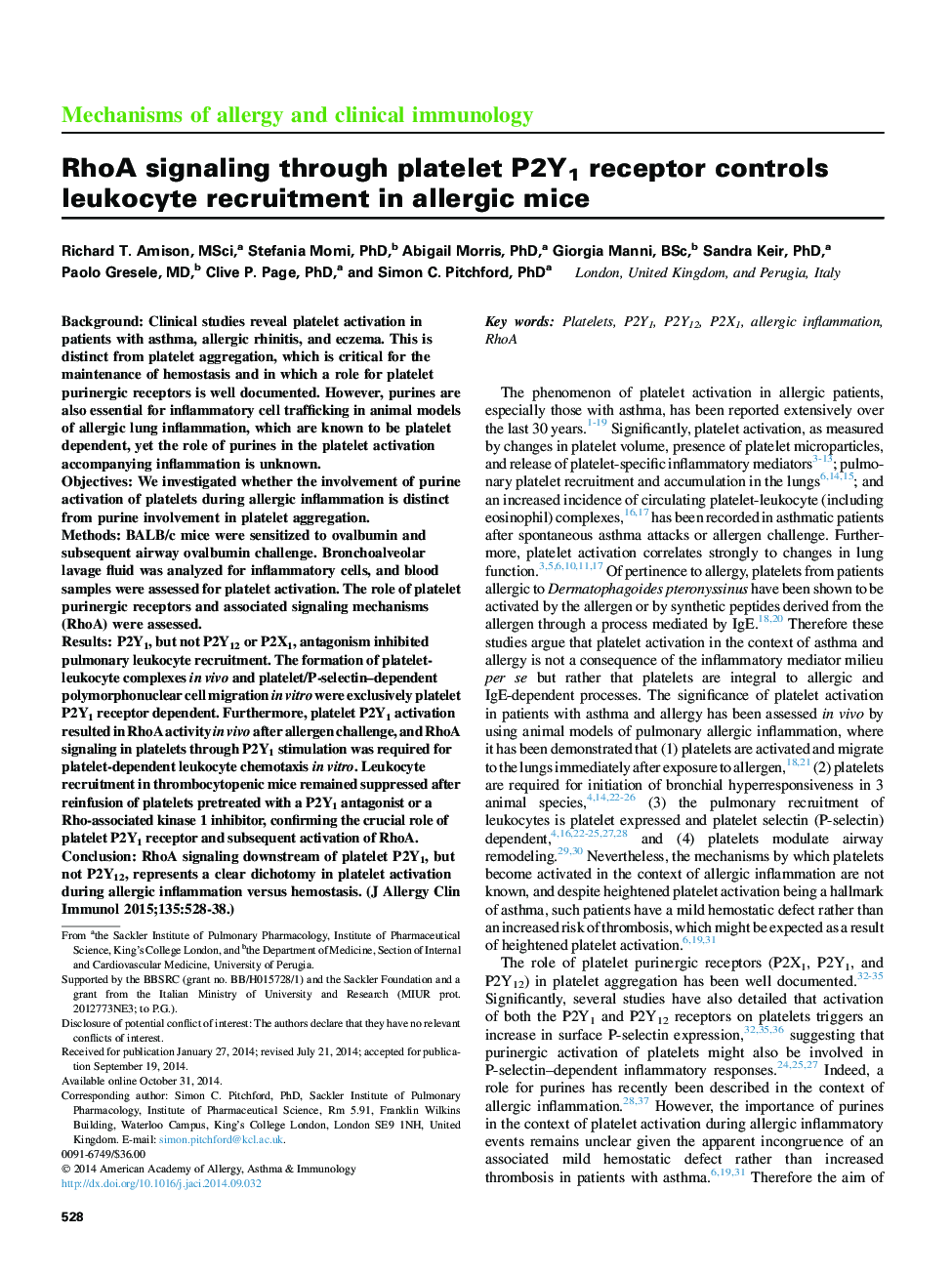| Article ID | Journal | Published Year | Pages | File Type |
|---|---|---|---|---|
| 6063385 | Journal of Allergy and Clinical Immunology | 2015 | 15 Pages |
BackgroundClinical studies reveal platelet activation in patients with asthma, allergic rhinitis, and eczema. This is distinct from platelet aggregation, which is critical for the maintenance of hemostasis and in which a role for platelet purinergic receptors is well documented. However, purines are also essential for inflammatory cell trafficking in animal models of allergic lung inflammation, which are known to be platelet dependent, yet the role of purines in the platelet activation accompanying inflammation is unknown.ObjectivesWe investigated whether the involvement of purine activation of platelets during allergic inflammation is distinct from purine involvement in platelet aggregation.MethodsBALB/c mice were sensitized to ovalbumin and subsequent airway ovalbumin challenge. Bronchoalveolar lavage fluid was analyzed for inflammatory cells, and blood samples were assessed for platelet activation. The role of platelet purinergic receptors and associated signaling mechanisms (RhoA) were assessed.ResultsP2Y1, but not P2Y12 or P2X1, antagonism inhibited pulmonary leukocyte recruitment. The formation of platelet-leukocyte complexes in vivo and platelet/P-selectin-dependent polymorphonuclear cell migration in vitro were exclusively platelet P2Y1 receptor dependent. Furthermore, platelet P2Y1 activation resulted in RhoA activity in vivo after allergen challenge, and RhoA signaling in platelets through P2Y1 stimulation was required for platelet-dependent leukocyte chemotaxis in vitro. Leukocyte recruitment in thrombocytopenic mice remained suppressed after reinfusion of platelets pretreated with a P2Y1 antagonist or a Rho-associated kinase 1 inhibitor, confirming the crucial role of platelet P2Y1 receptor and subsequent activation of RhoA.ConclusionRhoA signaling downstream of platelet P2Y1, but not P2Y12, represents a clear dichotomy in platelet activation during allergic inflammation versus hemostasis.
